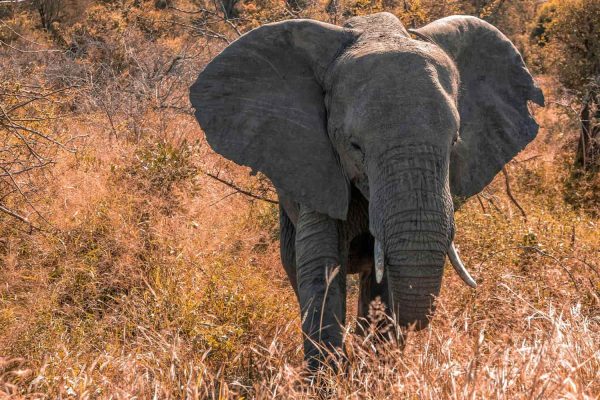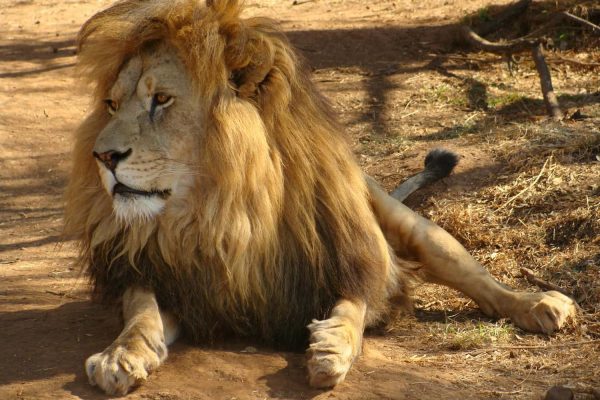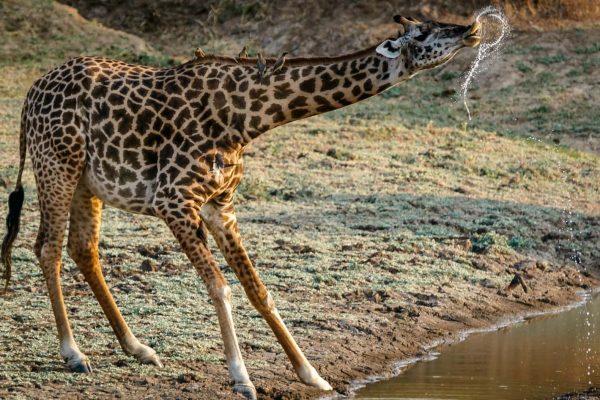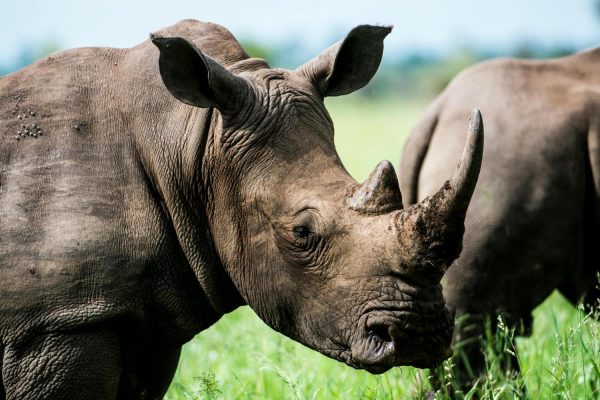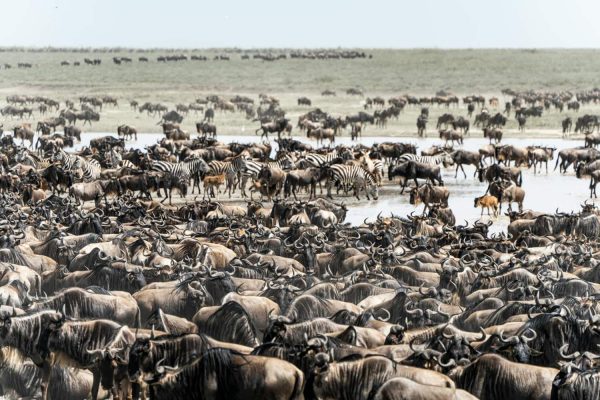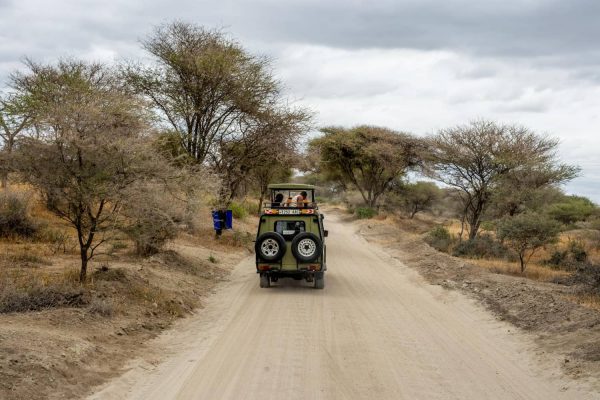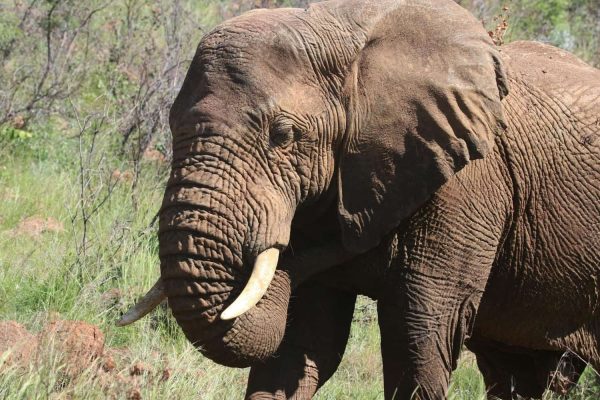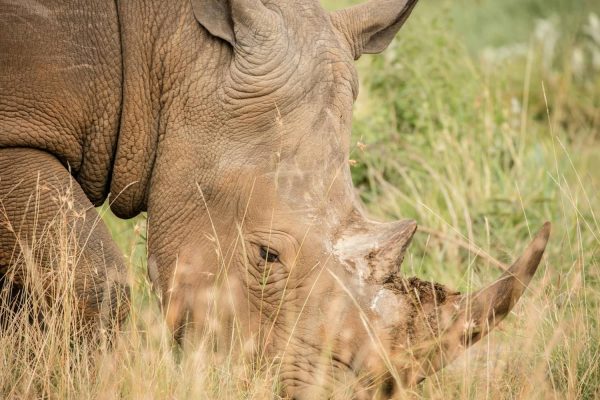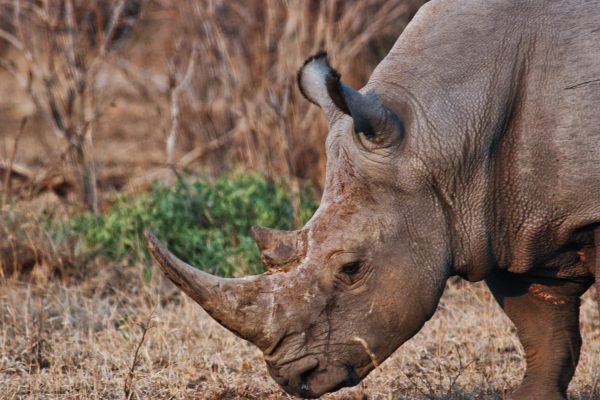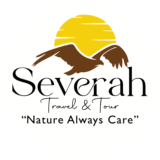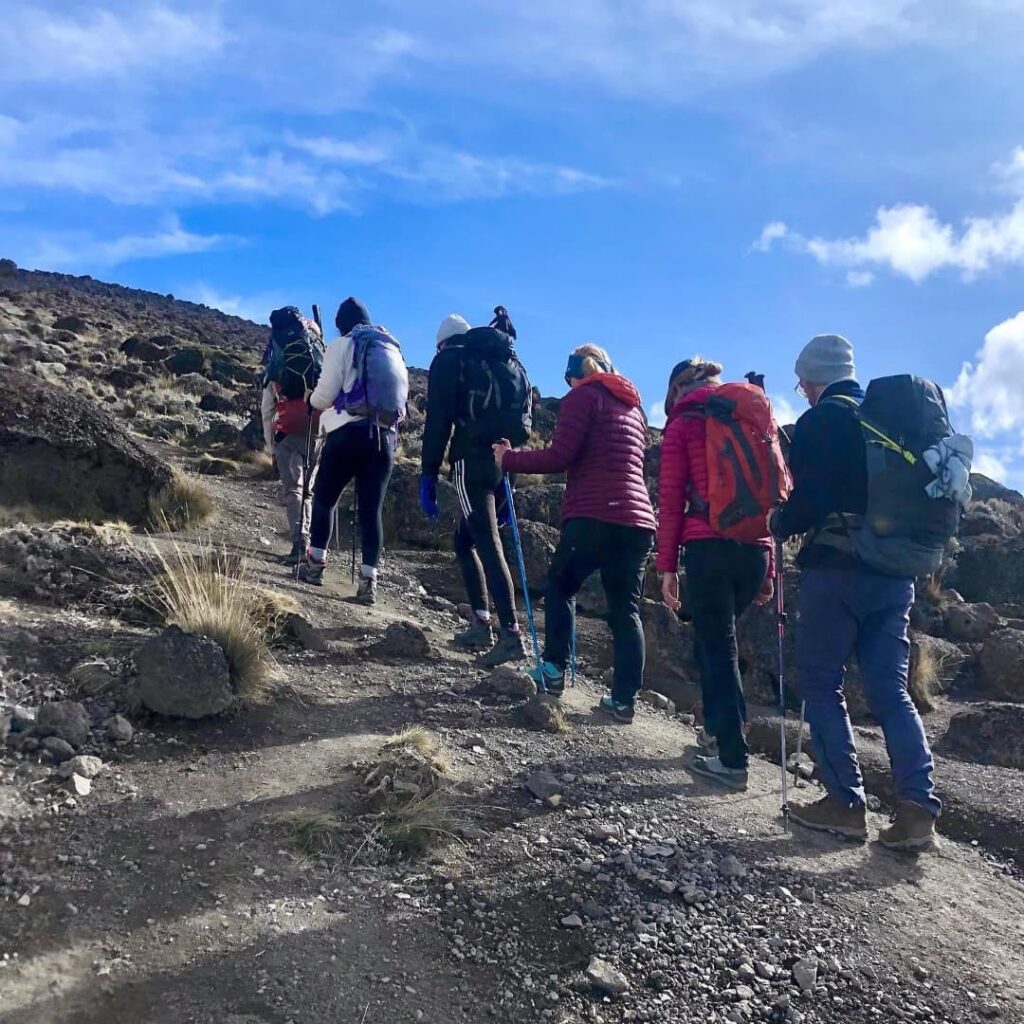SAFARI OVERVIEW
Lemosho route is one of the best routes for acclimatization. The route is less used and a beautiful way up to the Shira Plateau.
The route is one of the few where groups may be accompanied on the first day by an armed ranger, as the forests around the Lemosho Glades are inhabited by buffalo, elephant and other wildlife.
8 days Lemosho has one of the highest success rates. The additional days give your body more time to acclimatize, reducing the effects of altitude sickness and give you more time to rest before attempting the summit.
≤ 2 PAX
2291
US$
3 PAX
2220
US$
4 PAX
2208
US$
5 PAX
2200
US$
6 PAX
2170
US$
≤ 7 PAX
2166
US$
SAFARI DETAIL
Day 0: Pre-trek Briefing
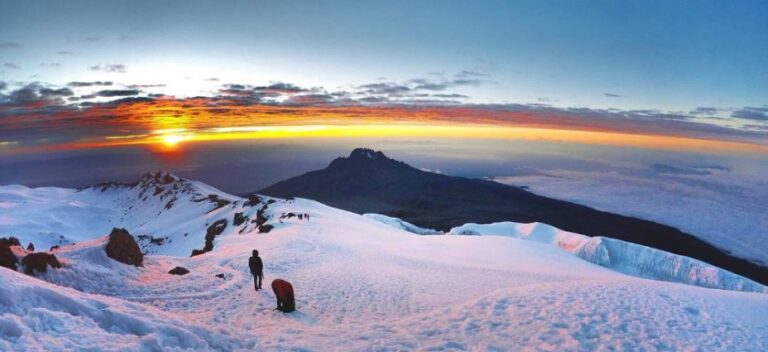
If you have opted for the optional airport transfers, we will pick you up from Kilimanjaro Airport or Arusha Airport and transfer you to your hotel in Moshi.
Pre-trek briefing at your Moshi hotel. You should be planning to arrive at least one day before the start of the trek. Today we will spend in having a pre-trek briefing. We will also review your equipment and rent any equipment which is needed.
Day 1: Hotel to Mti Mkubwa Camp
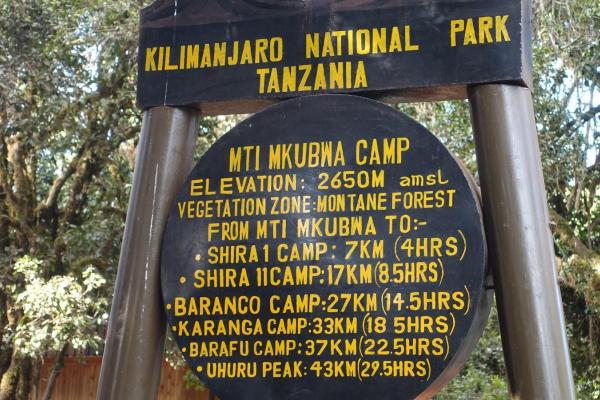
After breakfast and briefing, drive to Lemosho Park Gate. From here a forest track requiring a 4WD vehicle leads to Lemosho Gate. Walk along forest trails to Mti Mkubwa (big tree) campsite.
Elevation: 1830m/6000ft to 2650m/8700ft
Distance: 6km/4mi
Hiking Time: 2-3 hours
Habitat: Montane Forest
Meals: Lunch and Dinner
Day 2: Mti Mkubwa Camp to Shira 1 Camp

After breakfast, we continue as the trail gradually steepens and enters the giant heather moorland zone. After several streams are crossed we continue over the Shira Ridge then gently downwards to Shira 1 camp located by a stream on the Shira Plateau.
Elevation: 2650m/8700ft to 3500m/11,500ft
Distance: 8km/5mi
Hiking Time: 4-5 hours
Habitat: Moorland
Meals: Breakfast, Lunch and Dinner
Day 3: Shira 1 Camp to Shira 2 Camp

After breakfast, a gentle hike across the plateau leads to Shira 2 camp on moorland meadows by a stream. A variety of hikes are available on the Plateau, making this an excellent acclimatization day.
Elevation: 3500m/11,500ft to 3850m/12,600ft
Distance: 8km/5mi
Hiking Time: 4-5 hours
Habitat: Moorland
Meals: Breakfast, Lunch and Dinner
Day 4: Shira 2 Camp to Barranco Camp
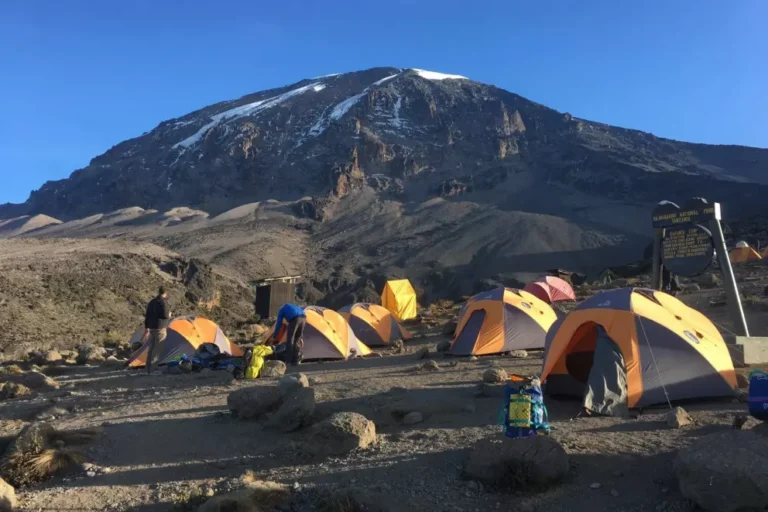
From the Shira Plateau we continue to the east up a ridge, passing the junction towards the peak of Kibo. As we continue, our direction changes to the South East towards the Lava Tower, called the “Shark’s Tooth” (elev 4650m/15,250ft). Shortly after the tower we come to the second junction which goes to the Arrow Glacier. We now continue down to the Barranco Camp. Although you end the day around the same elevation as when you began, this day is very important for acclimatization and will help your body prepare for summit day.
Elevation: 3850m/12,600ft to 4000m/13,000ft
Distance: 8km/5mi
Walking Time: 5-6 hours
Habitat: Semi-desert
Meals: Breakfast, Lunch and Dinner
Day 5: Barranco Camp to Karanga Camp

After breakfast, we leave Barranco and continue on a steep ridge up the Barranco Wall to the Karanga Valley and the junction which connects with the Mweka Trail.
Elevation: 4000m/13,000ft to 4050m/13,250ft
Distance: 5km/3mi
Climbing Time: 3-4 hours
Habitat: Alpine Desert
Meals: Breakfast, Lunch and Dinner
Day 6: Karanga Camp to Barafu Camp

Very early in the morning (midnight to 2 am), we continue our way to the summit between the Rebmann and Ratzel glaciers. You head in a north-westerly direction and ascend through heavy scree towards Stella Point on the crater rim. This is the most mentally and physically challenging portion of the trek. At Stella Point you will stop for a short rest and will be rewarded with the most magnificent sunrise you are ever likely to see. Faster hikers may view the sunrise from the summit.
From Stella Point, you may encounter snow all the way on your 1-hour ascent to the summit. Once at Uhuru Peak you have reached the highest point on Mount Kilimanjaro and the continent of Africa!
From the summit we begin our descent by continuing straight down to the Mweka Camp, stopping at Barafu for lunch. You may want gaiters and trekking poles for the loose gravel going down. We arrive at Mweka Camp and enjoy our last evening on the mountain.
Elevation: 4700m/15,350ft to 5895m/19,340ft
Down to 3090m/10,150ft
Distance: 5km/3mi up / 13km/8mi down
Hiking Time: 5-7 hours up / 5-6 hours down
Habitat: Stone scree and ice-capped summit
Meals: Breakfast, Lunch and Dinner
Day 7: Barafu Camp to Summit to Mweka Camp

Very early in the morning (midnight to 2 am), we continue our way to the summit between the Rebmann and Ratzel glaciers. You head in a north-westerly direction and ascend through heavy scree towards Stella Point on the crater rim. This is the most mentally and physically challenging portion of the trek. At Stella Point you will stop for a short rest and will be rewarded with the most magnificent sunrise you are ever likely to see. Faster hikers may view the sunrise from the summit.
From Stella Point, you may encounter snow all the way on your 1-hour ascent to the summit. Once at Uhuru Peak you have reached the highest point on Mount Kilimanjaro and the continent of Africa!
From the summit we begin our descent by continuing straight down to the Mweka Camp, stopping at Barafu for lunch. You may want gaiters and trekking poles for the loose gravel going down. We arrive at Mweka Camp and enjoy our last evening on the mountain.
Elevation: 4700m/15,350ft to 5895m/19,340ft
Down to 3090m/10,150ft
Distance: 5km/3mi up / 13km/8mi down
Hiking Time: 5-7 hours up / 5-6 hours down
Habitat: Stone scree and ice-capped summit
Meals: Breakfast, Lunch and Dinner
Day 8: Mweka Camp to Mweka Gate to Hotel
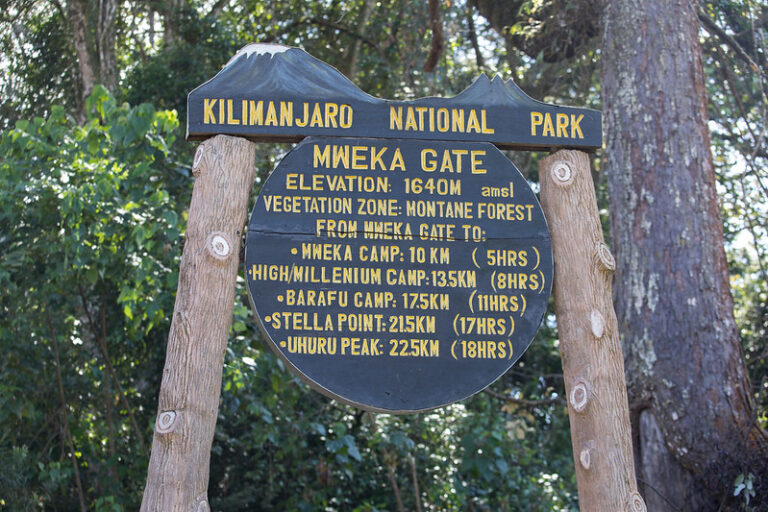
After breakfast we continue the descent down to the Mweka Park Gate to receive your summit certificates. At lower elevations, it can be wet and muddy. Gaiters and trekking poles will help. Shorts and t-shirts will probably be plenty to wear (keep rain gear and warmer clothing handy).
Severah Travel & Tours vehicle will be waiting for you at Mweka gate to drive you back to your hotel in Moshi (around 60 minutes).
Elevation: 3090m/10,150ft to 1680m/5500ft
Distance: 10km/6mi
Hiking Time: 3-4 hours
Habitat: Forest
Meals: Breakfast
INCLUDES
-
Conservation fees (part of park fees)
Quality, waterproof, four-season mountain sleeping tents (on twin sharing basis)
Large portions of fresh, healthy, nutritious food
All transfers to the mountain and back to your Moshi hotel
Professional, experienced, mountain guides
Clean, purified drinking water
Emergency Oxygen Cylinder
Kilimanjaro summit certificate
Quality Mess tents with table and chairs
Sleeping Mattress
All meals while on the Mountain
Professional, experienced, mountain guides
Guides, Porters, Cook salaries and park fees
Camping or Hut fees (part of park fees)
Rescue fees (part of park fees)
VAT (18% charged by the Government)
EXCLUDED
-
Tanzania Visa
International and domestic flights
Transfers (available as an optional addon)
Personal trekking equipment such as sleepings bags, hiking boots, clothes, etc (available for renting)
Tips and gratuities (Senior guide: $30 per day from the whole group Assistant guide: $20 per day from the whole group Cook: $15 per day from the whole group Porter: $10 per day from the whole group)
Travel insurance
Personal Expenses (e.g. laundry, telephone, beverages, etc.)
Meals not listed in the itinerary
Liquors, beers and bottled beverages
Surcharge for online payment of advance and balance (5% on each payment)
Spoiler alert!
Some photos of what you will find in this adventure:
